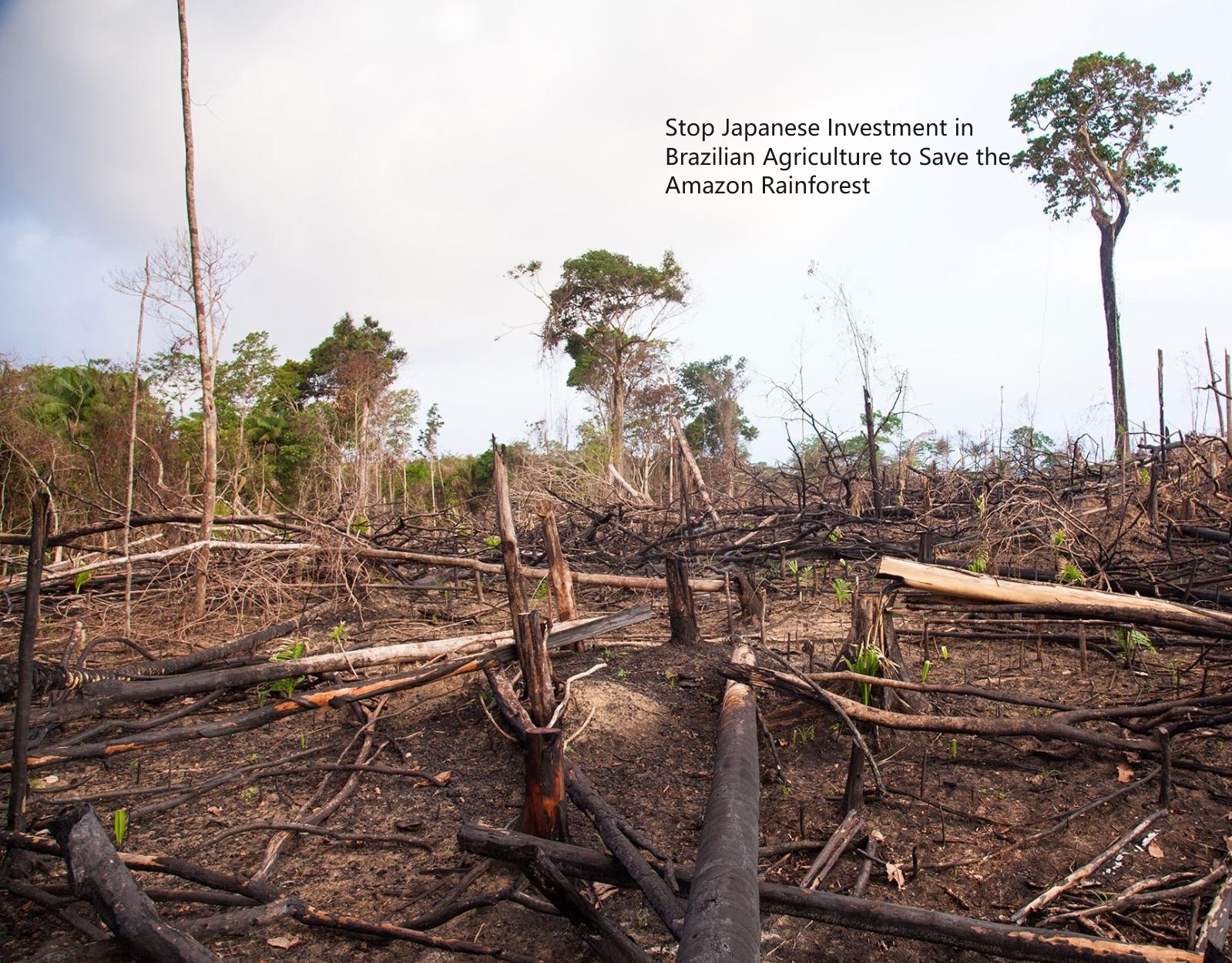The Amazon rainforest, often referred to as the “lungs of the Earth,” plays a critical role in regulating the global climate and maintaining biodiversity. Despite its importance, this precious ecosystem faces relentless threats from deforestation and agricultural expansion. Among the key contributors to this devastation are Japanese companies investing heavily in Brazilian agriculture, particularly in soybean cultivation. It is imperative to raise awareness and take action to halt these investments to protect the Amazon rainforest.
The Impact of Soybean Cultivation on the Amazon
- Deforestation: Soybean cultivation is one of the leading causes of deforestation in the Amazon. Vast areas of rainforest are cleared to make way for soybean fields, resulting in the loss of countless trees and habitats. According to data from Brazil’s National Institute for Space Research (INPE), deforestation rates have surged in recent years, with agricultural expansion being a primary driver.
- Biodiversity Loss: The Amazon is home to approximately 10% of the world’s known species. When forests are cleared for agriculture, countless species lose their habitats, leading to declines in biodiversity. The conversion of forests to monoculture soybean fields dramatically reduces the diversity of plant and animal life.
- Carbon Emissions: The Amazon rainforest is a significant carbon sink, absorbing large amounts of carbon dioxide from the atmosphere. Deforestation for soybean cultivation releases this stored carbon back into the atmosphere, contributing to global warming. The World Wildlife Fund (WWF) estimates that deforestation in the Amazon accounts for approximately 10% of global carbon emissions.
- Indigenous Communities: The expansion of soybean farms often encroaches on indigenous lands, threatening the livelihoods and cultures of indigenous peoples. These communities rely on the forest for their way of life, and its destruction disrupts their social and economic structures.
The Role of Japanese Companies
Japanese companies are major players in the global soybean market. Their investments in Brazilian agriculture have facilitated the expansion of soybean farms into the Amazon. For instance, major Japanese trading houses like Mitsubishi, Marubeni, and Sumitomo have significant stakes in Brazil’s agribusiness sector. These companies provide the financial backing and infrastructure needed to convert forests into farmland.
Why We Must Act
- Global Responsibility: As one of the world’s largest economies, Japan has a responsibility to ensure its business practices do not contribute to environmental degradation. Halting investments in destructive agricultural practices in the Amazon aligns with global efforts to combat climate change and preserve biodiversity.
- Sustainable Alternatives: Japanese companies can invest in sustainable agricultural practices that do not involve deforestation. This includes supporting agroforestry, sustainable land management, and other practices that maintain the integrity of the rainforest.
- Corporate Accountability: By pressuring Japanese companies to divest from destructive agricultural practices, consumers and activists can hold these corporations accountable for their environmental impact. Public awareness and consumer choices can drive significant changes in corporate behavior.
Conclusion
The Amazon rainforest is an irreplaceable treasure that must be protected. Japanese investments in Brazilian soybean cultivation are contributing to its destruction at an alarming rate. By raising awareness and advocating for responsible investment practices, we can help ensure that the Amazon remains a thriving, biodiverse ecosystem for future generations. It is time for Japanese companies to take a stand and prioritize the health of our planet over short-term profits.

Leave a Reply